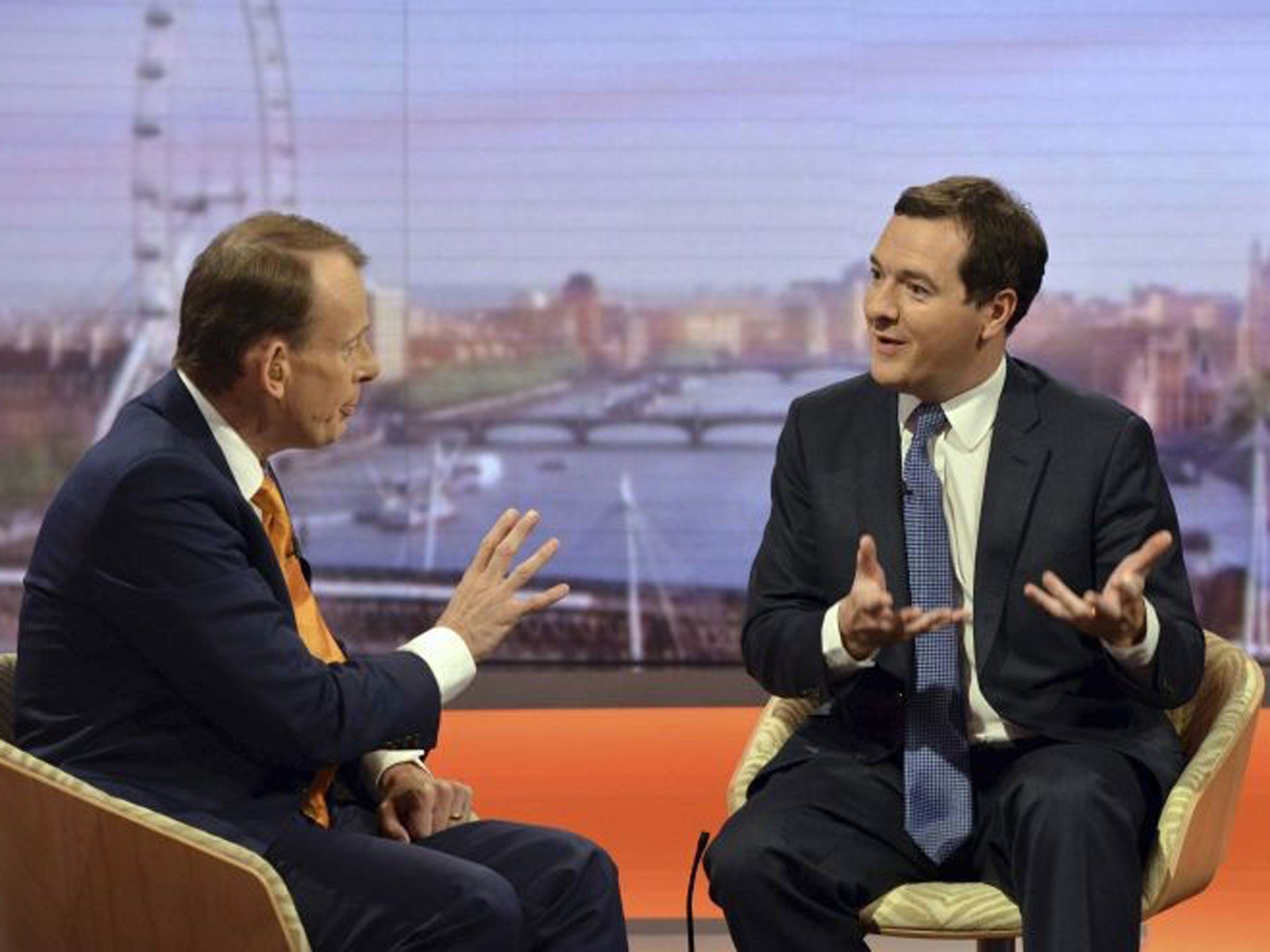Osborne rules out rethink or new vote on Syria action
Chancellor rules out any rethink on military action, even if facts on the ground change, and joins William Hague in attack on Ed Miliband for 'partisan' actions

Your support helps us to tell the story
From reproductive rights to climate change to Big Tech, The Independent is on the ground when the story is developing. Whether it's investigating the financials of Elon Musk's pro-Trump PAC or producing our latest documentary, 'The A Word', which shines a light on the American women fighting for reproductive rights, we know how important it is to parse out the facts from the messaging.
At such a critical moment in US history, we need reporters on the ground. Your donation allows us to keep sending journalists to speak to both sides of the story.
The Independent is trusted by Americans across the entire political spectrum. And unlike many other quality news outlets, we choose not to lock Americans out of our reporting and analysis with paywalls. We believe quality journalism should be available to everyone, paid for by those who can afford it.
Your support makes all the difference.The chancellor George Osborne has said the Government will not return to Parliament to ask for another vote on military action in Syria, even if a fresh wave of attacks occurred, new evidence emerged or chemical weapons fell into the hands of al-Qa’ida.
After US President Barack Obama announced last night that he will seek congressional support before any strikes against the regime of Bashar al-Assad, the prospect was raised of the subject being revisited in the Commons if the facts changed.
Both the shadow defence secretary Jim Murphy and shadow foreign secretary Douglas Alexander seemed to indicate on the BBC’s Andrew Marr show this morning that David Cameron would “have a right” to go back to Parliament if major new developments surrounding chemical weapons occurred.
Yet the chancellor said: “I think Parliament has spoken.
“The Conservative MPs, and there were Liberal Democrats, who couldn't support us, they have a deep scepticism about military involvement and I don't think another UN report, or whatever, would make the difference.
“Of course I wanted us to be part of a potential military response. Now that is just not going to be open to us now because the House of Commons has spoken.”
While Mr Osborne told Andrew Marr that “this is was democracy”, he also aimed a political sideswipe at the Labour leadership for the role they played in derailing the crucial vote on Thursday night.
“I think the Labour party will always play this opportunistically,” he said.
And he specifically targeted the Labour leader, saying: “I think Ed Miliband looks a bit less like a Prime Minister even than he did a few weeks ago.”
Appearing on Sky News's Murnaghan programme, the foreign secretary William Hague joined the chancellor in calling into question Mr Miliband’s conduct, suggesting he has incurred the disapproval of international observers.
He said: “On such occasions everyone should be able to rise above any party interests. I think the Labour Party leadership will have some hard thinking to do about their approach.
“There are some serious concerns in other capitals – not just across the Atlantic but in European capitals as well – about the position they have taken in voting down a Government motion which actually had in it pretty much everything that they asked for.”
And in keeping with his party’s line on Syria, Mr Hague said: “I don't think it's realistic to think that we can go back to parliament every week with the same question having received no for an answer.
“The Labour leadership would have to play a less partisan and less opportunistic role and be prepared to take yes for an answer in terms of the motions that we present to the House of Commons.”
Looking ahead to the prospect of a US Congress vote on Syria, Mr Hague said: “The United States are clear that the special relationship remains.
“They have been very good about the result of our vote and understand that we respect democratic procedures in our country, and so equally we must respect theirs.”
Join our commenting forum
Join thought-provoking conversations, follow other Independent readers and see their replies
Comments